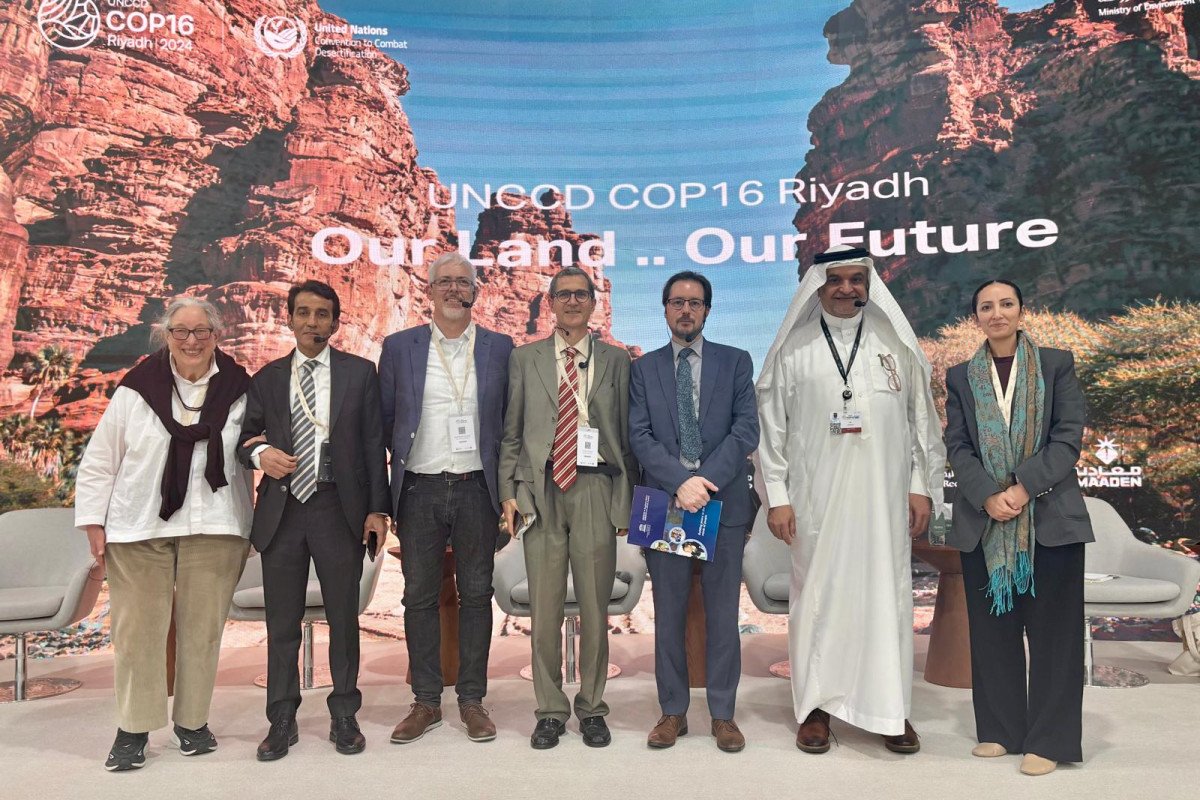
On 8 December in Riyadh, Saudi Arabia, the Global Network of Water Museums organised a session within the UNCCD COP 16, ‘Water Sustainability for Green Future Forum’, to focus on Ancient Hydro-Technologies (AHTs) as a key resource to better managing water and preventing desertification.
Indeed, AHTs offer a source of inspiration and a framework knowledge that today can be combined with innovative technologies to help arid regions cope with the growing impacts of climate change, mass migration, and the progressive abandonment of desertscapes.
Communitarian water management practices are based on empirical knowledge and far-sighted values and hydro-visions. As such, they represent a knowledge base which, properly adapted and combined with innovative technologies, can help achieve the Sustainable Development Goals (SDGs) more effectively than practices based solely on large infrastructures and energy-intensive technologies, which often impact natural freshwater ecosystems heavily.
The session featured contributions from Arif Alkalali (Ministry for Environment, Water, and Agriculture of the Kingdom of Saudi Arabia), Koen Verbist (Intergovernmental Hydrological Program of UNESCO, Division of Water Sciences), Eriberto Eulisse (Executive Director of the Global Network of Water Museums - WAMU-NET, a flagship initiative of UNESCO-IHP), Jordi Morato Farreras (UNESCO Chair ‘Sustainability’, Technical University of Barcelona, Spain), Abdennabi El Mandour (Director, Museum of Water Civilisations of Morocco ‘Mohamed VI’), Philippe Pypaert (Senior consultant, Global Network of Water Museums), Linda Lilienfeld (Let’s Talk about Water), Donia Abdelwahed (UNESCO Office for the Gulf States and Yemen, Doha).
Experts spoke about the potential benefits of identifying, for each practice, the innovative technology that can be applied, on a case-by-case basis, considering a trans-disciplinary and holistic perspective, to safeguard ancient community hydraulic practices and enhance freshwater ecosystems in arid regions worldwide.
Examples of this type include solar panels with power conduits for managing khettara, foggara, aflaj or qanats in Morocco, Algeria, Oman and Iran; new restoration techniques and monitoring systems involving local communities to improve biodiversity in desert oases; and new technologies that support processing of natural materials used to preserve vernacular architecture.
The combination of AHTs with new technologies can play a crucial role in future management of water resources, fostering social cohesion, preserving biodiversity and freshwater ecosystems: in this sense the creation of ‘eco-museums’ in desert oases and arid environments has been presented as a potential tool for preserving AHTs and, therefore, ensuring a high level of biodiversity and community involvement for smooth ecological transition in arid regions.
This session organized at COP 16 by the Global Network of Water Museums (WAMU-NET) also discussed the paradigmatic case studies on AHTs that were presented at the 10th World Water Forum, in Bali, Indonesia, through a multi-channel video-installation aimed at promoting the role of AHTs for sustainable futures. ‘The Voices of Water’ was conceived as a WAMU-NET contribution to the forthcoming Virtual Science Museum of UNESCO. With this session at COP16, leading experts discussed how to develop further this approach by creating an international monitoring platform and a Community of Practice (CoP) to identify and further promote AHTs.
Water Film Prize ‘BACK TO OUR FUTURE’
The water film prize ‘BACK TO OUR FUTURE’ - Desertscapes, Biodiversity, and Ancient Hydro-Technologies for Ecological Transition in Arid Regions’, which was launched during COP 16, has been the focus of discussion too.
‘BACK TO OUR FUTURE’ will bring together filmmakers, scientists, and community leaders to address global water challenges. The prize will celebrate humanity's ancient heritage of ingenious water management while highlighting new ideas and solutions that foster biodiversity and the natural functions of aquatic ecosystems combined with innovative technologies and monitoring systems.
‘BACK TO OUR FUTURE’ will be managed by WAMU-NET in cooperation with Let’s Talk about Water. The first two editions will take place in 2025 and 2026. BTF will also feature WAMU-NET’s contribution to the 11th World Water Forum which will take place in the Kingdom of Saudi Arabia (2027).
Go to the press release of the Water Film Prize ‘BACK TO OUR FUTURE’
